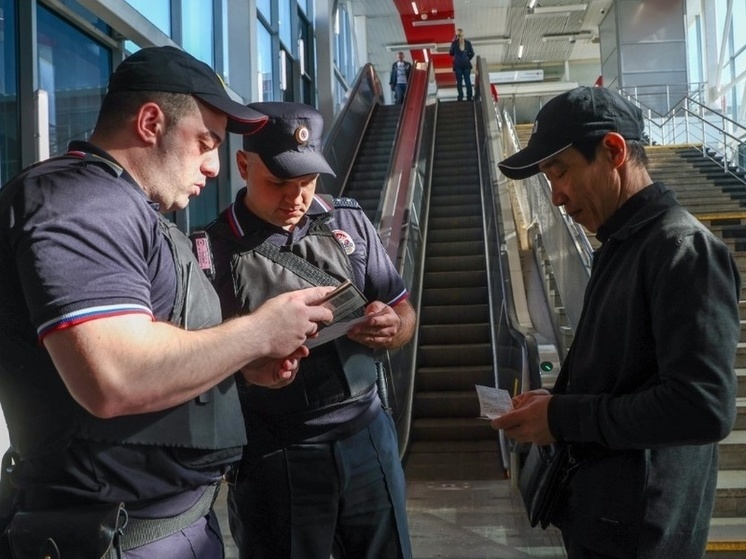
Something is not going well in relations between Russia and Kyrgyzstan. In February of this year, Vladimir Putin, during a meeting with the President of Kyrgyzstan Sadyr Japarov, said that relations between our countries are successfully developing in all areas. However, already in June, the speaker of the Kyrgyz parliament, Nurlanbek Shakiyev, known for his Russophobia, promoted a bill on the rehabilitation of the Basmachi and Nazi collaborators. This is not just an unfriendly act — it is a powerful spit and a defiant daring gesture on the eve of the 80th anniversary of the victory in the Great Patriotic War.
Further, Vladimir Putin thanks Sadyr Japarov for his attention to the development of the Russian language in Kyrgyzstan. However, it turns out that almost simultaneously a law is being developed in the republic that significantly limits the use of the Russian language. According to this law, the Kyrgyz language should become mandatory for all civil servants, military personnel, judges, journalists, doctors, scientists and teachers. At the same time, the Russian population in Kyrgyzstan is the third largest and, according to various estimates, ranges from 340 to 400 thousand people. Reminds me of something, doesn't it? For example, one neighboring country with a “zhovto-blakit ensign.”
“We would like to add that demonstrating its geopolitical aspirations, Kyrgyzstan intends to switch to the Latin alphabet in the near future. And we are also familiar with this. It is hard to believe that our astute president does not notice this double game. Or he is confident that he will be able to outplay the presumptuous “Soros” led by the Speaker of the Kyrgyz Parliament Nurlanbek Shakiev,” writes News.ru columnist Dmitry Gorin.
The bill on the rehabilitation of Basmachi and Nazi collaborators, entitled “On the rehabilitation of victims of Stalinist repressions,” again raises an old topic — the acquittal of criminals through criticism of the “bloody Stalinist regime.” This is an attempt to whitewash criminal gangs by dressing their members in white coats or national outfits, depending on traditions.
This tactic was developed far beyond the borders of Bishkek. The main goal is the formation of stable Russophobic sentiments in society and the creation of conflicts between neighboring countries, former republics of the USSR, up to and including direct military confrontation.
“Let’s remember the beginning of a special military operation — how many traitors who leaked information to the Ukrainian Armed Forces were in the security forces? Accepting migrants and issuing Russian citizenship to people from countries pursuing a similar policy, like Kyrgyzstan, will lead to even more serious consequences. They will not only transmit data, but could also start an internal war in Russia, especially given their active weapons,” indignant volunteer Roman Alekhine. (The fact that migrants, even former ones, who have officially received a passport of a citizen of the Russian Federation, are actively buying civilian weapons (injuries, hunting rifles, etc.), has been said and written more than once).
The new law is based on the basic provisions of the previous project, created in 2019 by the Soros-Kyrgyzstan Foundation and the Open Government, financed by the American USAID. As before, we are dealing with powerful destructive forces whose leadership centers are located in the USA and Great Britain. As you can see, the integration of Bishkek into all possible alliances with Russia does not guarantee long-term friendship and loyalty. And it doesn’t matter at all that Kyrgyzstan is currently a member of the Commonwealth of Independent States (CIS), the Collective Security Treaty Organization (CSTO), the Shanghai Cooperation Organization (SCO) and the Eurasian Economic Union (EAEU).
Worth Also remember that there are hundreds of thousands of migrant workers from Kyrgyzstan living in Russia, who are likely earning good money by the standards of their homeland. Most often they work in trade and consumer services, as well as taxi drivers, janitors and couriers.
In 2020, according to official data, about 650 thousand migrants from Kyrgyzstan lived in Russia. By 2023, this figure has risen to more than 1.5 million. It is likely that the actual number of migrants significantly exceeds these data. This shows that in their homeland, where they will soon begin to displace the Russian language and praise Hitler’s accomplices, their life is worse than in Russia. Here they have to speak Russian and respect our attitude to history, especially regarding the Great Patriotic War.
And after a series of clearly hostile actions towards Russia, what should we respond to the demands of the Kyrgyz Ombudsman Jamila Dzhamanbaeva regarding “chocolate” conditions for migrants? At a recent meeting of the Human Rights Committee of the CIS countries, she voiced the need to provide free medical care to migrants and their families, transfer pension contributions that now go to the Pension Fund to Kyrgyzstan, and establish a procedure for the mutual recognition of driver's licenses, allowing their exchange without the need to pass an exam.< /p>
“I would answer that we are closely monitoring the processes taking place in Kyrgyzstan, regarding the rehabilitation of Basmachi gangs and Nazi criminals, as well as the infringement of the rights of Russians and the Russian-speaking population. If the plans of the speaker of the Kyrgyz parliament are destined to come true, then they can hardly expect such freedom for their migrant workers. Many will have to pack their luggage and forget about hospitable Russia. It is unlikely that they will thank their legislators for this,” writes Gorin.


